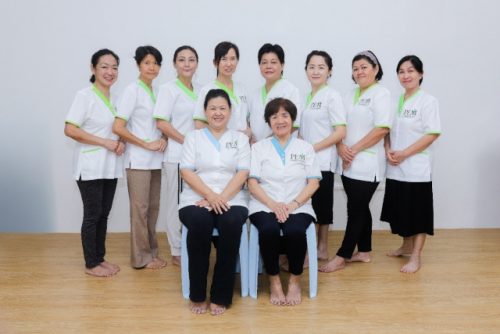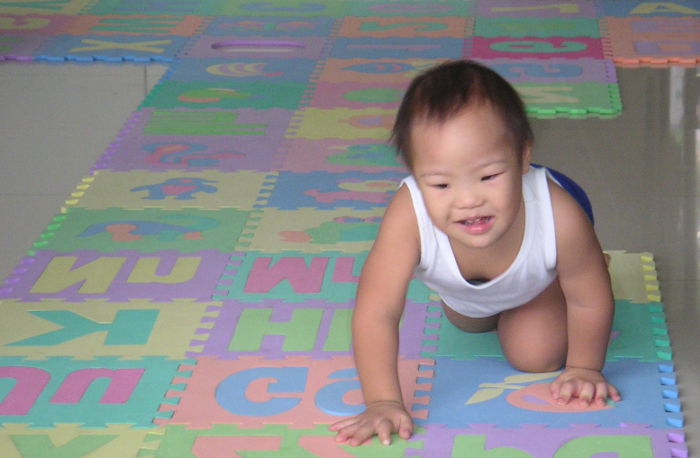Most parents share the same commonality – they have their child’s best interests at heart. Unfortunately, this does not equate to being on the same page. The value of “best” of what is “good” may vary across a continuum. Everyone grows up with different backgrounds, ingrained beliefs and even who should call the shots with regards to decisions.

It may subconsciously be the way you raise your child and how choices are made. Faced with a vulnerable infant who needs Dad and Mum to make choices for food, sleep, discipline etc, there are many opportunities for disagreement right from the start.
Is it okay to disagree?
Minor differences in parenting styles are still acceptable. From parents to secondary caregivers and eventually teachers, children will be exposed to a variety of approaches as they grow older. Complementary approaches may also build on each other. Dad may like to tell stories while Mum likes to do crafts with the kids.

However, major disagreements in parenting may be an issue. Parents who stand divided may cause confusion to the children. They may also learn that with one parent you may get permission for something that the other won’t give you.
Dos and Don’t’s
- Do disagree with respect. It is okay to disagree due to different views. However there should be no contempt or personal attack. Don’t let parenting differences drive a wedge between you and your spouse as this will discourage compromise and unity.
- Do understand the context. Get the full story before jumping into a situation. Too often one parent thinks the problem lies with the other.
- Be open. Observe how your partner’s approach works without intervening when you normally do (unless it is an abusive situation). Things will have a better outcome contrary to your worries, or your spouse may see from experience how he needs to take another approach.
- Don’t undermine your partner. For example if Mum says no junk food, Dad by rewarding the children with candy would be undermining Mum’s efforts and goals towards healthy eating. Come up with ways that can still achieve the purpose of rewarding without undermining the other person.
- Don’t micro-manage. Be realistic about the severity of the differences. If Mummy used the day diaper instead of the night one, or if Daddy put on put baby to bed 15 minutes later then he said he would; consider if the matter is worth disputing about. Arguments take place with an emotional cost and discourage the other parent’s involvement.
Working out the differences between parents

- Discuss with each other values that guide your parenting. Explore each other’s view point to see where he/she is coming from. “Were there experiences that taught you that kids have to be tough and you can’t show love to them?”
- Express how you want both of you to act as parents. If it is a dire situation, get support from other parents to validate your cause before you talk to your spouse. Be focused that you are advocating for the sake of the children.
- Be supportive of each other. If Mummy has prepared dinner, Daddy should not dawdle.
- Is the issue between you and your spouse? The root cause of parenting with significant disagreements may be due to some internal problems within the couple. It may be worth it to check for underlying marital problems in some cases. You are a mother or father, but you are also a husband or wife.
- Use a tie-breaker. A book, counsellor, or class may be an avenue which may diffuse the tension. Both parents can discuss and come up with things they do not agree and things they are able to agree with, then use that common ground as a platform for guiding the child.
Lastly, but most importantly, do not trash it out in front of the children.
It is vital to present a united front to the children while working on issues behind closed doors or with a counsellor. Children take cues from their parents’ behaviour; needless to say being divisive may affect the marriage and cause harm to the child’s being as well as the relationship to both or one of the parents. Know that you are different from each other but work together respectfully toward the same parenting goals.
*Disclaimer: This article does not apply to situations of abuse. In cases of abuse or emergencies, immediate intervention is needed and protection of the children is a priority.
By Som Yew Ya.
* * * * *
Like what you see here? Get parenting tips and stories straight to your inbox! Join our mailing list here.
Want to be heard 👂 and seen 👀 by over 100,000 parents in Singapore? We can help! Leave your contact here and we’ll be in touch.





















































